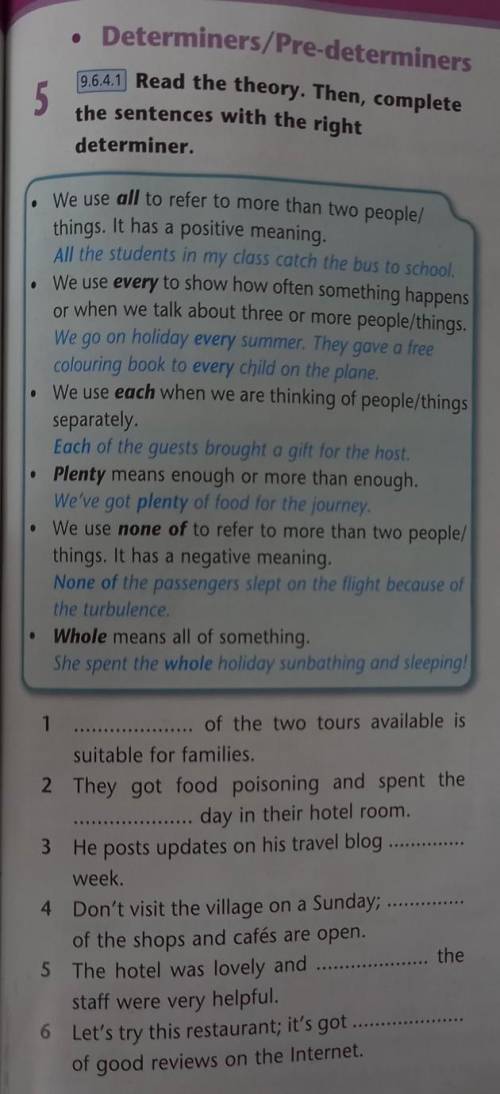
de people keep money? - in a safe.
Where do people dine? - on earth
Where do people go for a walk - in prak
What do people do in the theater? - watch cartoons and movies
What do people do at the zoo? - look at different animals
What do people do in the library? - read books
Объяснение:
де люди хранят деньги?- в сейфе.
Где люди обедают?- на земле
Где люди гуляют?- в праке
Что люди делают в театре?- смотрят мульфильмы и кино
Что люди делают в зоопарке?- смотрят на различных животных
Что люди делают в библиотеке?- читают книгы
ответ: 1. each
2. whole
3. every
4. none
5. all
6. plenty